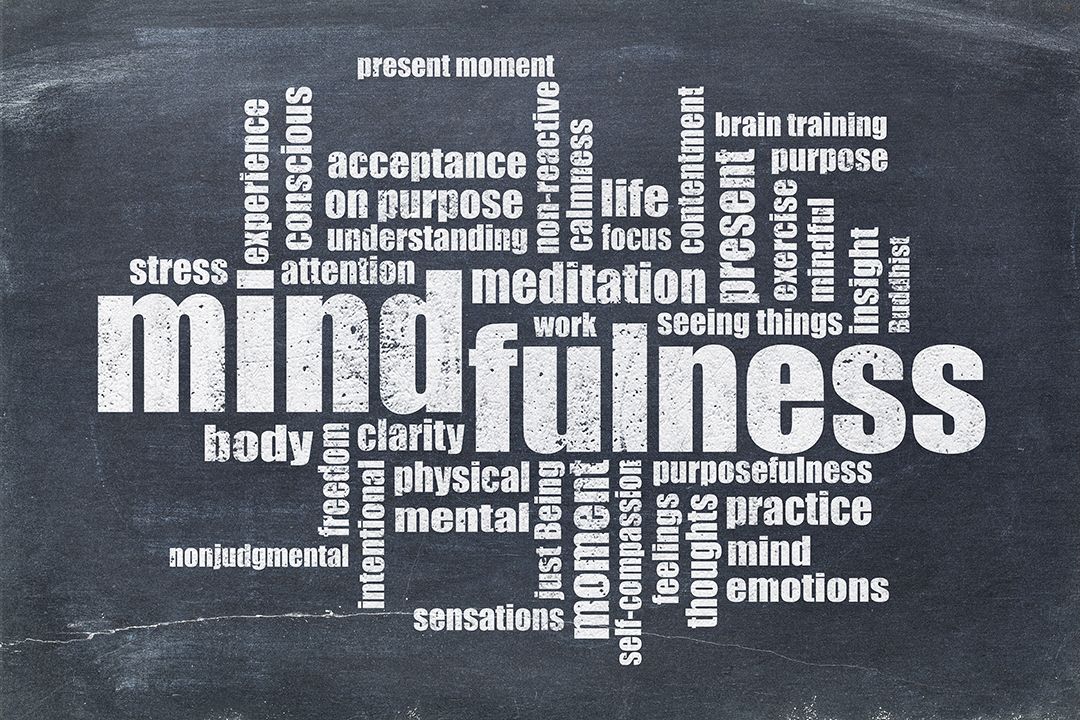Mindfulness to Enhance & Lengthen Recovery

The practice of mindfulness can be helpful and healthy for everyone, but it is especially relevant for people in addiction recovery. By facilitating conscious awareness with a nonjudgmental perspective, mindfulness can decrease the vicious circles of anxiety, fear, anger, sadness, depression, guilt, regret, and shame that make so many recovering people vulnerable to relapse. Because of the potential threat they pose to recovery, most people have extremely negative reactions to cravings and their natural impulse is to try to avoid or suppress them.
Attempting to avoid or escape cravings only makes them stronger and last longer.
Through mindfulness practices individuals in recovery can better separate themselves from addictive thoughts and emotional attachments to the object(s) of their addiction by observing their urges to use with an open and curious attitude from a place of accepting, non-judgmental awareness.
Mindfulness helps people learn how to shift their relationship to discomfort, whether that discomfort is physical, mental, or emotional. When an uncomfortable feeling like a craving or anxiety arises, people who practice mindfulness are better able to recognize their discomfort and observe it with presence and compassion, instead of automatically looking for something, alcohol or other drugs, food, sex, shopping, gambling, social media, etc. to keep it at a distance.
Mindfulness benefits recovery in several specific ways by helping to:
1. Learn and practice the skill of urge surfing—noticing urges and cravings as they arise without acting on them, until they pass like ocean waves that crest and then recede
2. Decrease the “need” to fix or control situations, including one’s internal experience
3. Improve communication by providing more opportunity to respond intentionally rather than react automatically
4. Enhance the ability to cope with emotional distress
Urge Surfing:
Urge surfing is a mindfulness practice developed by G. Alan Marlatt, PhD, as part of Mindfulness-Based Relapse Prevention. Urges, cravings, or impulses to engage in the use of substances or activities, like waves at the ocean’s edge, follow a natural progression, they rise in intensity, reach a crest, crash, and then recede.
The conscious awareness mindfulness brings about helps people build the skill of observing urges or cravings to use alcohol and other drugs (or food, sex, gambling, or shopping), to be present with them, accept them, and ride them out, rather than fight against them or act on them reflexively and unconsciously.
Urge surfing allows cravings to run their course, allowing them to crest and subside by observing without judging them or oneself, and accepting them without becoming attached to or trying to suppress them. The reality is that, left to their own devices, urges or cravings rarely last longer than 15 to 20 minutes, at which point they pass.
How to Surf an Urge:
1. In the same way that skilled surfers scan the ocean looking to pick up waves as soon as they begin to form, you can practice becoming aware of urges early in their genesis. When an urge occurs, notice it consciously. Name it as an urge to use.
2. Observe the internal experiences—the thoughts, emotions, and physical sensations—that comprise the urge. Visualize the urge as a wave. Tune in to your breathing, focusing on making your breathing slower and deeper—breathing in fully and deeply through your abdomen on your inhale and breathing out completely to empty your lungs on your exhale. You can use this form of intentional breathing like a surfboard, to be present with the wave as it rises, peaks, and subsides, effectively riding it out.
When the next urge arises, repeat steps one and two. The more you practice this process, the more quickly you’ll be able to recognize and name urges, and the more skilled you will become at riding them out.
Thoughts and feelings, including urges to use substances or activities, are always temporary.
Through mindfulness and its related practices (including meditation) it is possible to learn how to face uncomfortable, painful thoughts, feelings, and physical sensations, and let them pass—without obsessing on or avoiding them. The mindfulness practice of urge surfing can help those in addiction recovery learn how to bear urges or cravings more skillfully.